Vienna; in all its fascinating and frustrating glory
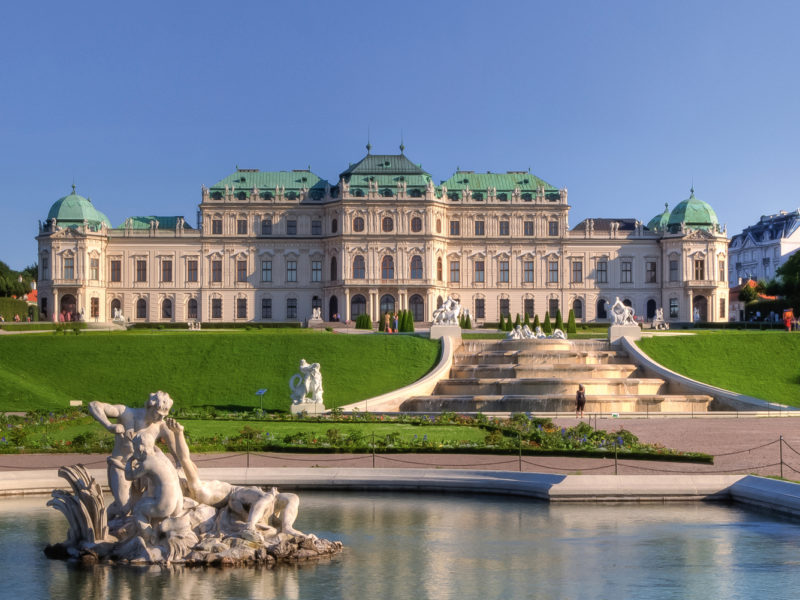
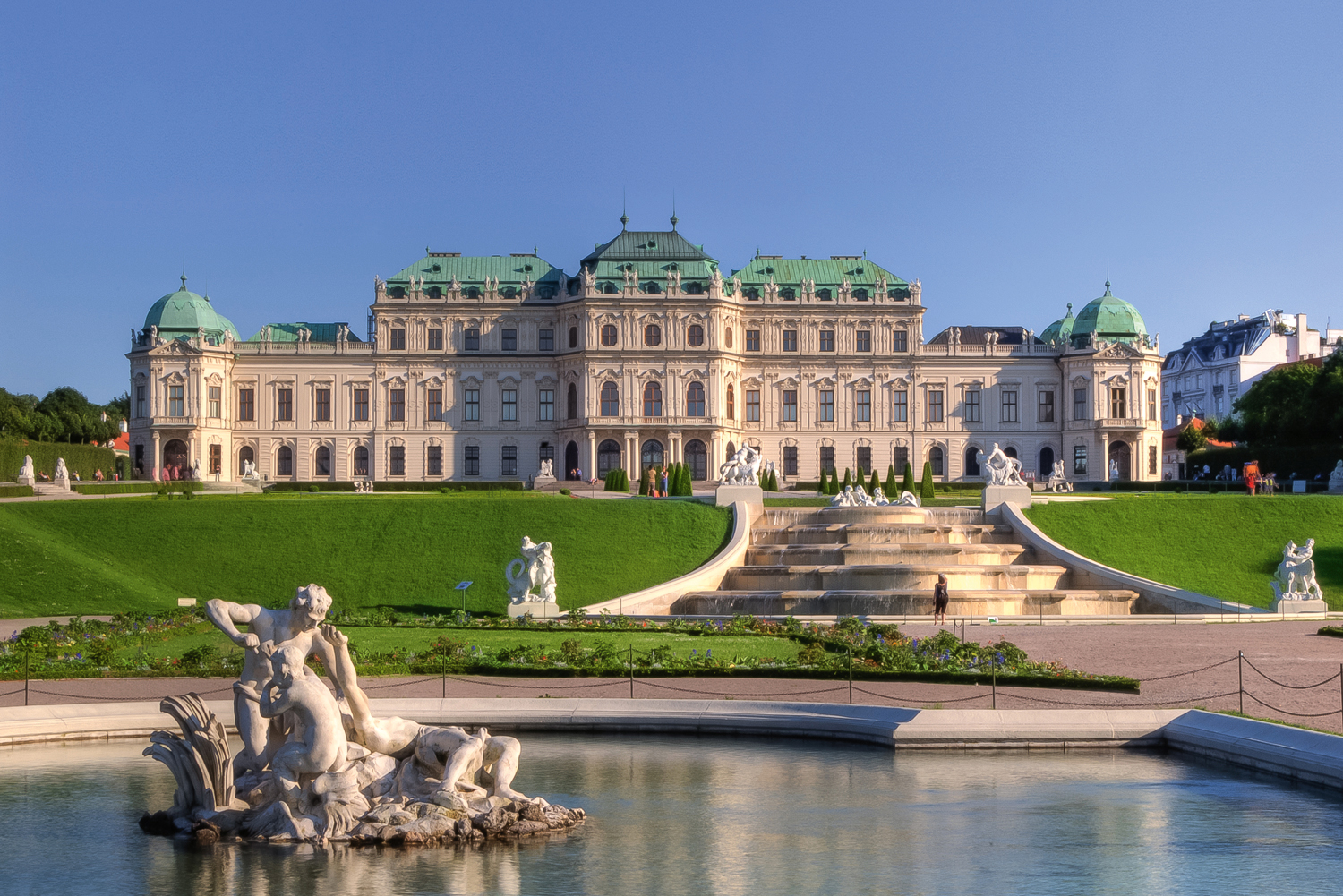
One of the most important baroque buildings in Vienna, the Schloss Belverdere.
Craig Tansley discovers living in Europe’s forgotten capital offers untold treasures… and heart-breaking frustration.
The first time I came to Vienna I got catatonically drunk on local schnapps and made snow angels outside the Burggarten while my favourite Billy Joel song played over in my inebriated, tiny mind… “when will you realise; Vienna waits for you”.
Enchanted I was, spellbound by the dark Baroque and Gothic buildings and the gargoyles that hissed at me from on top of 400-year-old buildings.
There was magic in the air in this place; snow flakes floated down on my face and I was smitten; a love-struck teenager… and just as drunk.
A year later, almost to the day, I was back. I’d met an Austrian girl at a bus stop on Oxford Street, Sydney and lost control of my senses. She’d left in the morning, to Vienna, a week later, I arrived with a suitcase and stayed 14 months; the Viennese, it seemed, were even more alluring than the city they inhabited.
The magic (of the city, that is) wore off in a month, replaced by a loneliness I’d never felt before. I discovered an entire city languishing in their bath-tubs; turning up their central heating to block out the bleak, cold world outside.
When I made it out I’d become invisible, a ghost from a brash new world; no-one understood a word I said, my girlfriend’s friends ignored me at parties.
Forget your diatribe against Paris, it’s Vienna where locals refuse to acknowledge English, except in the tourist-savvy First District (my own efforts at German were coming along at the speed of a galloping snail).
I felt inflated pleasure when I at last broke through my invisibility; Klaus made the espressos at my local café, he ‘got’ me, I spent weeks regaling him with homesick stories of Australia. A month later, Klaus asked me what part of Italia I was from.
I grew horns in Vienna. The Viennese don’t ‘do’ manners. I became June Dally Watkins attempting to teach a city to thank me for holding a door open or offering up my seat on the tram. It snowed hard sleet, and I grew tired of long soaking baths and DVD marathons.
I found myself perversely craving world-wide catastrophes – the BBC being the only English channel at home; and Homer Simpson isn’t even remotely funny speaking Deutsch. I snarled and hissed at an entire culture.
Then one morning summer arrived in Vienna with a rush of sunshine through my bedroom window and all was forgiven.
Vienna is Europe’s forgotten capital – its beauty, under the first ultra-violet rays of late-May, is shocking to the senses.
To visit in winter is to wonder where a city of bears hibernate. But sunshine turns Vienna’s First District into a non-stop carnival of film festivals, music concerts and food fairs; the Viennese live an entire year in those few warm months.
The sun doesn’t set till nearly midnight, so each night I’d join thousands sipping cheap weiss bier on the lawn beside Parliament, drunk not on the booze, but on the moody Viennese twilight.
The remnants of the medieval Austro-Hungarian Empire and the Habsburg Dynasty dwarfed us all in Vienna.
This city, with its regal architecture, is even prettier than Paris. Most visitors spend two or three days in Vienna exploring, I spent over 300 and found new treasures every day, and got lost each time. I’d try to re-visit the café or sunny market I found the day before only to fail but to find something superior.
I’d spend entire days watching Vienna change, I swear I could notice the seasons: a twig of life on a tall tree that wasn’t there yesterday.
In Australia I need to be entertained, in Vienna I could just sit and stare: at people, imagining the old man at the café had been there since Mozart’s time; at buildings, like St Stephan’s Cathedral in the heart of Vienna, a 900 year-old Gothic relic from the Middle Ages that was for centuries the tallest building in Europe.
I was each day the star of the movie playing out in my head.
I didn’t ever catch a tourist bus or take a single tour, you need not either. In Vienna, you should just roam, past the wedding cake architecture, past ancient buildings of white, calico, pink and yellow with their cast-iron balconies and sinister angel and demon statues, discovering what inspired history’s great Viennese residents: Mozart, Beethoven and Strauss.
I wandered the streets, notepad in hand like some Hemingway wannabe.
But then, in Vienna nothing seems contrived. People sit alone in the city’s coffeehouses reading poetry; coffee’s just the excuse to be there, some don’t even bother to sip, they just sit and smoke and watch their smoke clouds pirouette against the colourful low ceilings. In summer I reckon it disappoints them to see it escape into the fresh air.
I learnt to forgive the nuances of the Viennese, and to appreciate them instead.
My partner’s mother never got over me trying to hug her (Austrians don’t ‘do hugging’ I was told straight after), so it made me chuckle to watch the city’s inhabitants go about their days avoiding body contact. I learnt to live without idle chit-chat and to appreciate the theatre instead going on all around me.
And Vienna is a living theatre. In Vienna you can drink wine at a traditional Heuriger at 10am and no-one bats an eyelid; here when pigeons hump each other in the streets it almost looks romantic, and buskers play classical music on double-basses, while dressed in tuxedos (there’s not a single note of Wonderwall to be heard).
There are sure-fire ways to stimulate your love for this city.
Nothing works better than to ride the 43 tram to the leafy suburb of Grunzig on Vienna’s outer fringes and walk past its pretty cafes and sunny beer-gardens till you reach the hill that overlooks the entire city, strewn with vineyards and rambling parks.
Or ride the rickety old red-and-white trams that circle the First District and try to make out the Hofburg Palace from the Volksgarten or the Burggarten from the Albertina.
It made me dizzy, usually I’d end up sunning myself with the students in the Museums Quarter instead.
Vienna is the best city in Europe to get hopelessly lost in – it’s built on a grid, sooner or later you’ll find your way out.
Ignore the museum tours and the made-for-cheesy-tourists opera performances that triple in price in summer and allow yourself instead to wander aimlessly; then spend the day slowly finding your way out.
While you amble, eat pastries in Vienna’s famous coffee houses, order a Wiener Schnitzel with Grüner Veltliner in a sun-drenched square, and quietly breathe in a city that lives its entire year in one splendid season.
How to get there
Emirates fly direct to Vienna via Dubai from Sydney starting at $1800 return, check out emirates.com or call 1300 303 777.
When to go
Avoid winter, unless you combine Vienna with a ski holiday. European school holidays in July can be busy, go in the months around summer – late-April to late-June, late-August to early-October.
Where to stay
Affordable:
Take a hot little local’s tip in the middle of the expensive First District! Hotel Stephansplatz offers single rooms from 170 Euro per night.
The hotel offers views over Vienna’s most famous building – St Stephen Cathedral. Its bar has happy hour cocktails from $6.80. +43 153 405, hotelamstephansplatz.at
Luxury:
Relive all the majestic style and glamour of the Austro-Hungarian Empire at the Grand Hotel Vienna.
It’s just a walk from all major tourist attractions like the Albertina Museum, the State Opera and the Belvedere on the edge ofVienna’s picturesque First District. +43 151580, grandhotelwien.com
Where to eat
Affordable:
There’s a huge collection of modestly priced restaurants throughout the city (avoid the First District if you want to save money).
The most delicious treats can be found at the Naschmarket – 500 metres of incredible foods just west of the Karlsplatz in the Fourth District.
There’s also many great, inexpensive restaurants beside the market.
Luxury:
Consistently rated high on the S.Pellegrino list of the World’s Top 50 restaurants, Steirereck is a visitor’s best chance to taste traditional Austrian fare.
Chef Heinz Reitbauer uses local ingredients from his farm. Bring your Visa card. Henmarkt 2A, +43 713 3168, steirereck.at
You can’t leave without
Trying local wine (Vienna is the world’s largest wine-growing capital city) at rustic Heurigers (wine taverns) beside the vineyards themselves on the fringes of the city, heurigenkalender.at
Gorging yourself on Vienna’s famous pastries – like sachertorte, gugelhupf or try apfelstrudel – at the city’s famous kaffeehauses (coffee houses).
Catching a boat a few kilometres down the Danube to Europe’s other forgotten capital, Bratislava.
Best thing about
Vienna looks like a period movie set, its preserved Baroque architecture sets it apart in the beauty stakes of western European cities. But apart from July and August, you won’t have to share her with too many tourists.
Worst thing about
If you’re easily offended, avoid Vienna. People rarely say ‘hello’ or ‘thank you’, nor are smiles a facial feature favoured by residents.
You should know
Vienna is relatively safe, day and night.
Theft is rare and muggings are virtually non-existent.
Vienna has an excellent public transport system which is very easy to work out, and is inexpensive (whereas taxis aren’t).
Little English is spoken outside the major tourist areas, learn at least a few basic German expressions.
Vienna is called Wien in German – know this before you go!
More info: wien.info
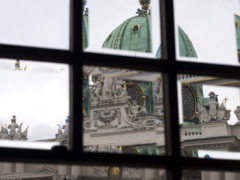
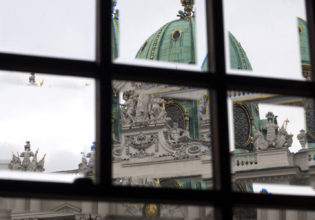
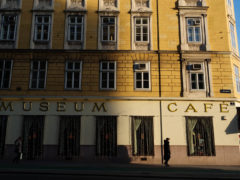
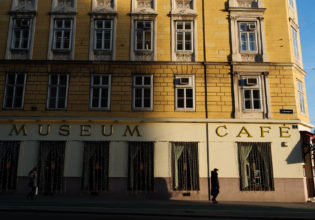
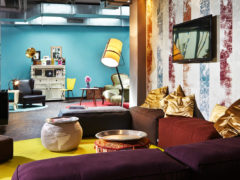
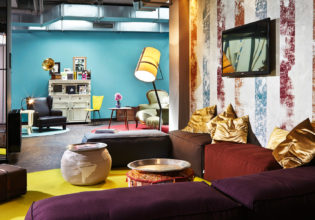

LEAVE YOUR COMMENT